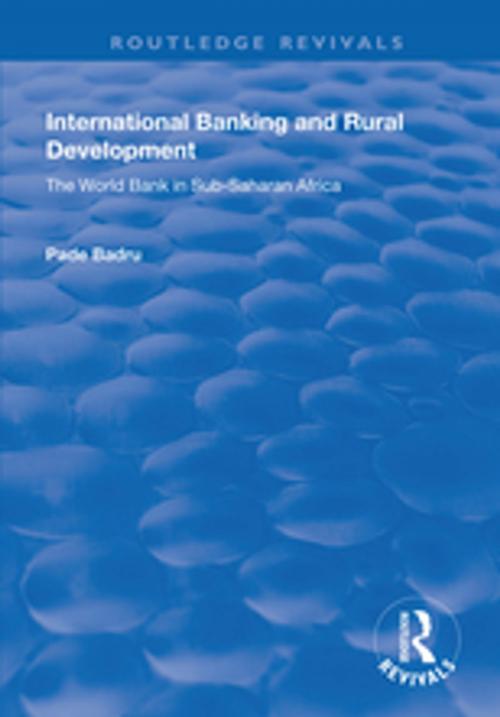International Banking and Rural Development
The World Bank in Sub-Saharan Africa
Nonfiction, Social & Cultural Studies, Social Science, Sociology| Author: | Pade Badru | ISBN: | 9780429853517 |
| Publisher: | Taylor and Francis | Publication: | December 20, 2018 |
| Imprint: | Routledge | Language: | English |
| Author: | Pade Badru |
| ISBN: | 9780429853517 |
| Publisher: | Taylor and Francis |
| Publication: | December 20, 2018 |
| Imprint: | Routledge |
| Language: | English |
Published in 1998, this book reviews two of the World Bank's agricultural development projects in southeast Nigeria, and concludes that the objectives of these projects - which include reducing rural poverty and developing indigenous capacity for rural development - have not been fully realized. This book concludes that what these projects have achieved in the past, was the increasing integration of the peasant's political economy into the world's capitalist market with negative consequences. For example, the projects emphasis on export crop production, as opposed to food production, simply led to a diminishing capability among peasant farmers especially in the project areas, to produce food for themselves - while at the same time, reporting increased productivity in export-related production. The end result is widespread poverty amongst the poorest strata of peasant farmers participating in the program. In addition, the book looks at the Bank's structural adjustment programme, which in fact has the potential to reduce whatever benefits its agricultural programs might bring about for peasant producers.
Published in 1998, this book reviews two of the World Bank's agricultural development projects in southeast Nigeria, and concludes that the objectives of these projects - which include reducing rural poverty and developing indigenous capacity for rural development - have not been fully realized. This book concludes that what these projects have achieved in the past, was the increasing integration of the peasant's political economy into the world's capitalist market with negative consequences. For example, the projects emphasis on export crop production, as opposed to food production, simply led to a diminishing capability among peasant farmers especially in the project areas, to produce food for themselves - while at the same time, reporting increased productivity in export-related production. The end result is widespread poverty amongst the poorest strata of peasant farmers participating in the program. In addition, the book looks at the Bank's structural adjustment programme, which in fact has the potential to reduce whatever benefits its agricultural programs might bring about for peasant producers.















